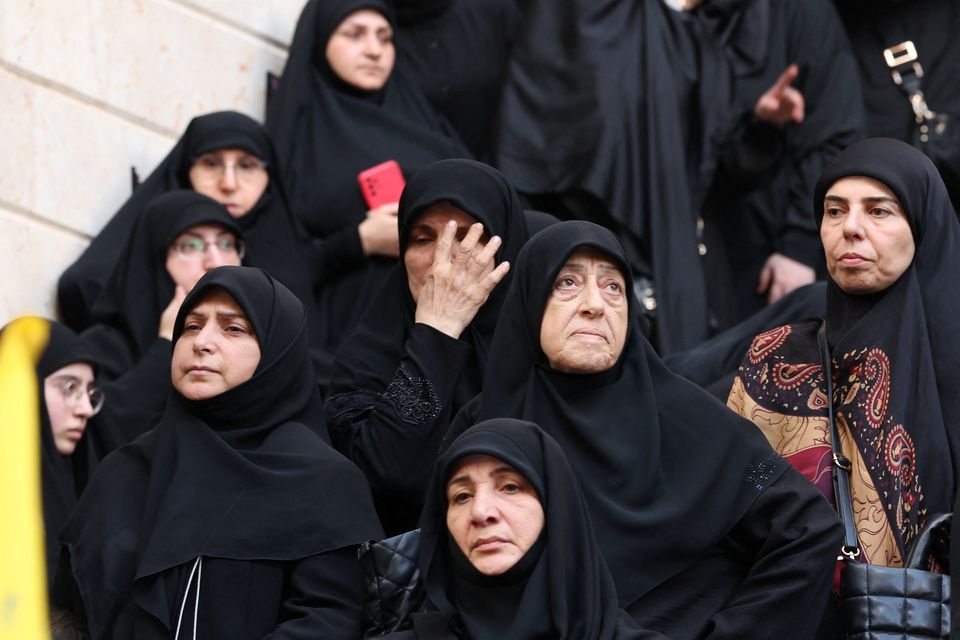
Women in Beirut attend the funerals of four people killed amid the detonation of pagers across Lebanon. Photo: Reuters Hezbollah's Ali Ammar whose son was killed by one of the pager bombs. Photo: AP A new development in the catalogue of terror, horror and misery afflicting long-suffering people in several countries across the Middle East has emerged.
Thousands of tiny bombs in paging devices exploding at much the same time in Lebanon and Syria have again brought this deeply conflicted region to the brink of all-out war. The devices were being used by Hezbollah fighters, the Iranian-backed Shia militia that has been firing rockets at Israel since last October. Some months ago, the militia leaders told activists to ditch their mobile phones, warning that Israel could hack them for spying and killing.

Hezbollah leaders made a wrong assumption that pagers were a safe alternative as they were wrongly believed to be too low-tech to be penetrated. The death count in Lebanon from pagers exploding on Tuesday was put at 12. The dead included the son of Ali Ammar, who has served in the Lebanese parliament for Hezbollah since 1992.
Then yesterday there were reports of walkie-talkies exploding, causing at least a dozen more deaths. Lebanon’s health department said around 2,800 others were wounded, including the Iranian ambassador in Beirut, who is believed to have been close to a pager. Medical personnel at various hospitals were advised to dump their pagers as another potentially lethal threat was added to the list.
Israel, as it usually does in such situations, remained silent, but across the globe, the reasonable assumption was being made – including here in Ireland by Tánaiste Micheál Martin – that it was the orchestrator. The longer-term consequences for the region and the wider world risk being calamitous Israeli prime minister Benjamin Netanyahu has for some time been talking up a planned operation against Hezbollah, stressing the need to “restore deterrence” against the group and other Iranian-backed militias. Hezbollah leaders spoke about a cyber attack, apparently to talk down the widely held suspicion that their security had been seriously breached.
The fallout put the focus on tech firms in Taiwan, and other places, again emphasising the international threats associated with the Middle East’s pernicious conflicts. Security authorities were pondering what form the Hezbollah reprisals might take, and many could not discount a return to attacks on Jewish communities beyond Israel in Europe and elsewhere. People who have devoted a chunk of their lifetime to observing the Middle East also pondered whether these pager bombs were the opening act for a bigger Israeli offensive in Lebanon – a prelude to an all-out invasion.
Soundings from Tel Aviv suggest Israel’s generals and politicians are split on whether the timing is right for such an action. However, the next few days will be extremely tense. By military assessments, this pager and walkie-talkie offensive has been a tactical win for Israel, but its longer-term consequences for the region and the wider world risk being calamitous.
The escalating crisis is crying out for significant intervention. Join the Irish Independent WhatsApp channel Stay up to date with all the latest news.














